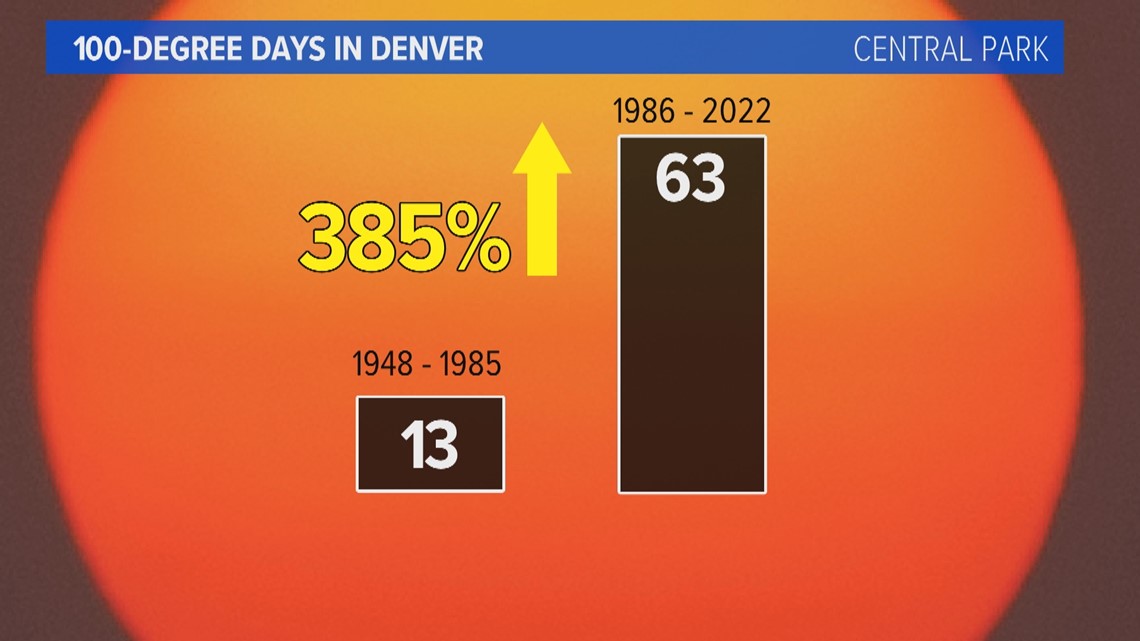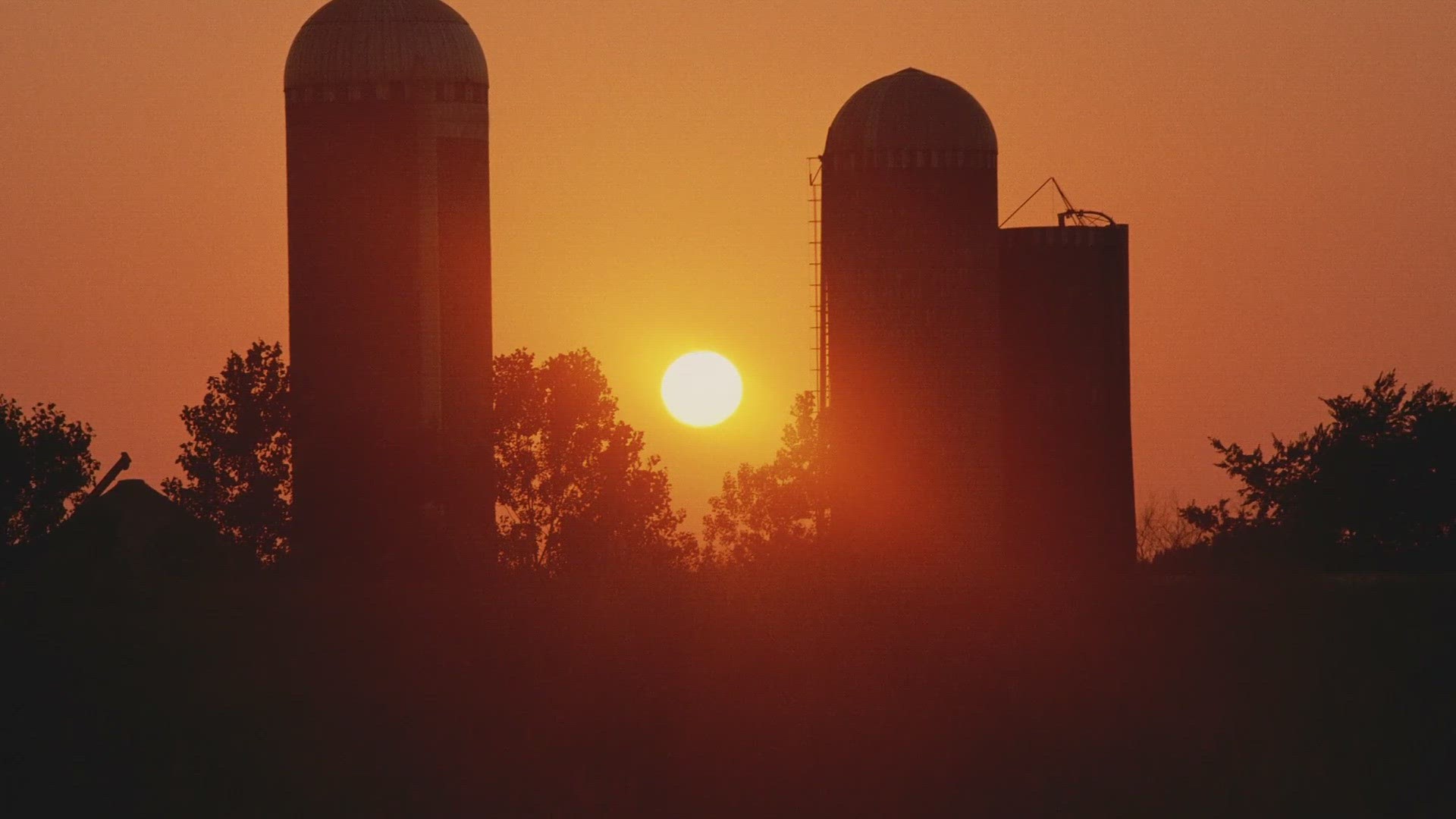DENVER — It broke 100 degrees on Monday in several places across Colorado, including 107 degrees in Grand Junction, which ties the all-time hottest temperature ever recorded there.
Several 99 and 100-degree temperatures were reported in the Denver metro area on Monday, but the official high temperature, which is recorded at Denver International Airport, was 97 degrees.
On average, it only hits 100 degrees in Denver one day a year (although the average is two days at DIA), but those hot days are becoming much more common.
The weather station at Denver Central Park has been there for 75 years. Over the first 38 years, from 1948 to 1985, it hit 100 degrees just 13 times. Over the last 37 years, from 1986 to 2022, it hit 100 degrees 63 times.
That's a 385% increase.


There are two factors to blame for the drastic increase in extreme heat.
For one, the atmosphere is warming globally due to an increase in the heat-trapping gas carbon dioxide.
Another factor is something called the urban heat island effect. The city of Denver has added more concrete and asphalt over the last 37 years, which attracts and absorbs heat more than grass, trees and even dirt.
Locations away from the urban heat island effect have also been experiencing an increase in 100-degree days, but not as drastic as the Front Range.
Akron, for example, has seen only a 122% increase over the last 40 years, with one hundred 100-degree days over the last 40 years compared to just 45 over the previous 40 years.
100-degree days are also coming earlier and later in the year.
Last year Denver tied a record for the earliest 100 on June 11. It’s only hit 100 five times before June 20 – all since 2006.
And we are now seeing 100s in Denver as late as September. That happened in 2019 and then again in 2020.
Denver has had five 100-degree days in each of the last two years. The last time Denver went the whole year without a 100-degree day was in 2015.
SUGGESTED VIDEOS: Colorado Climate

